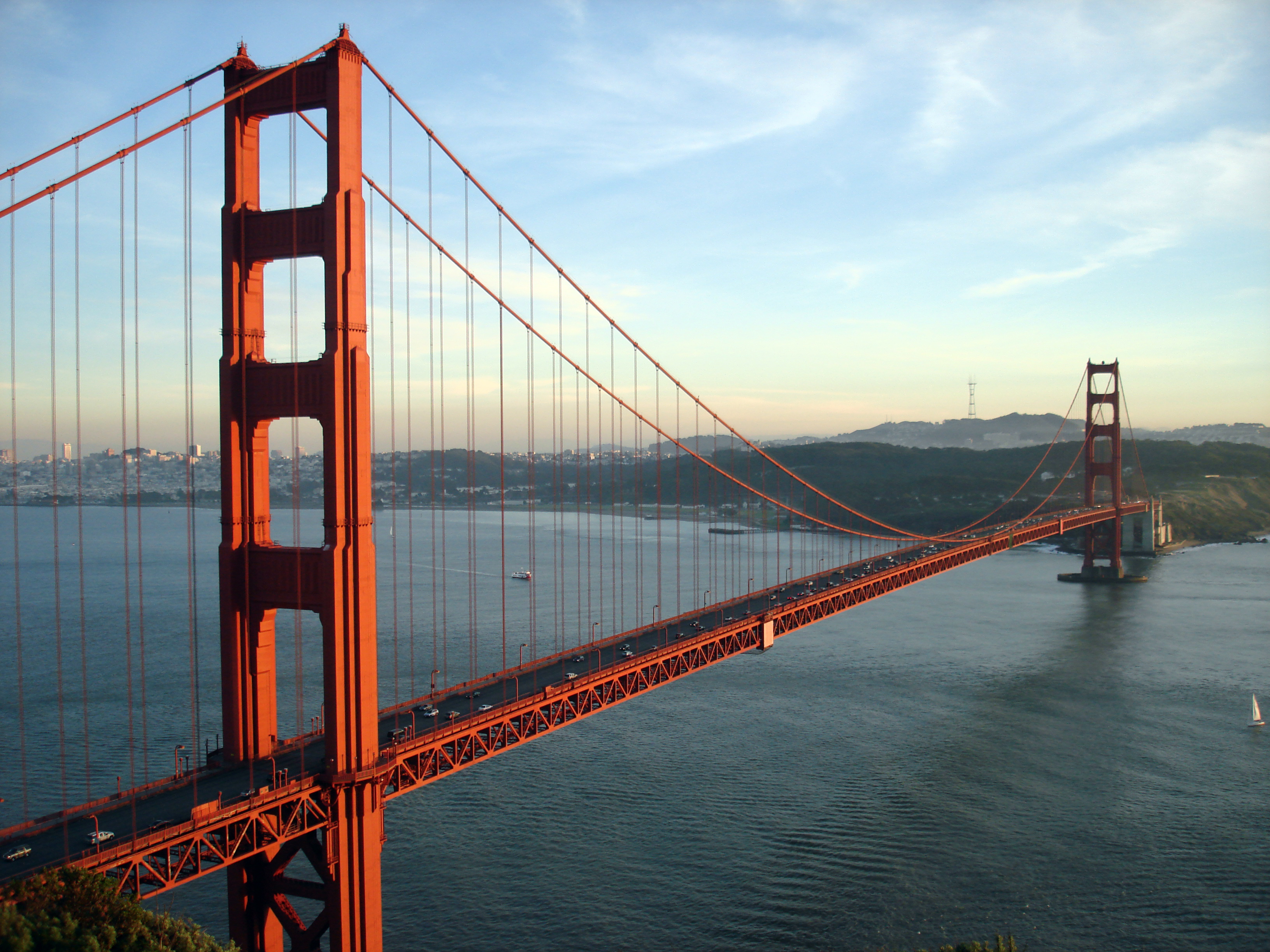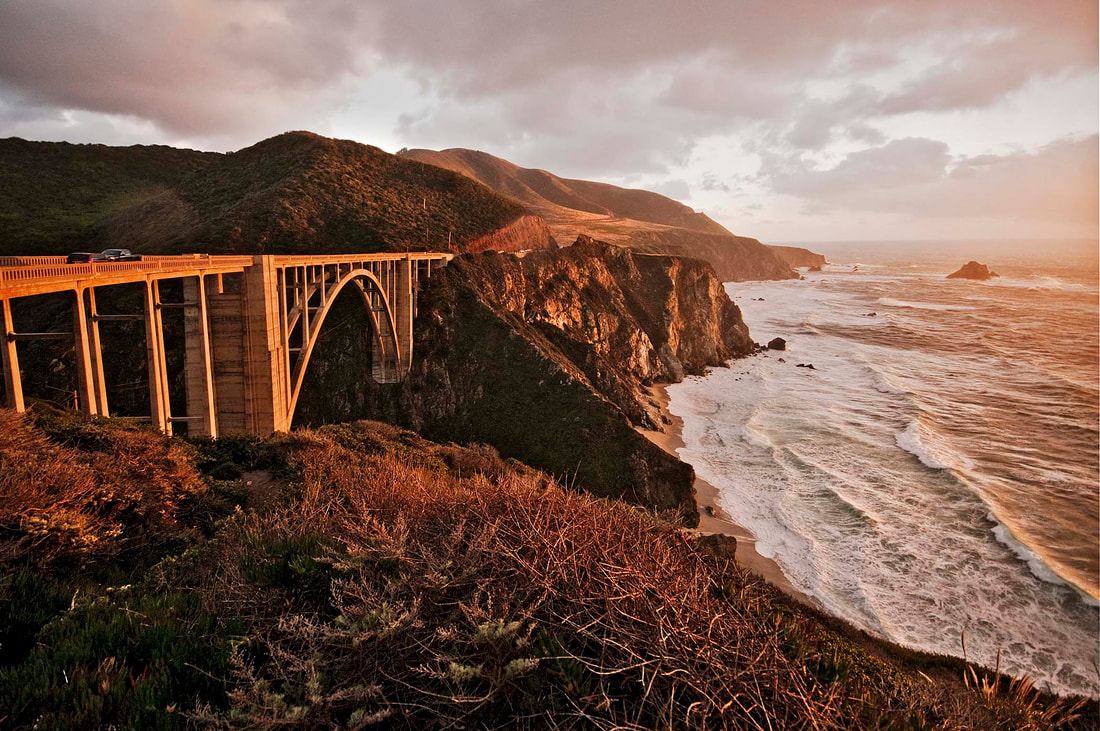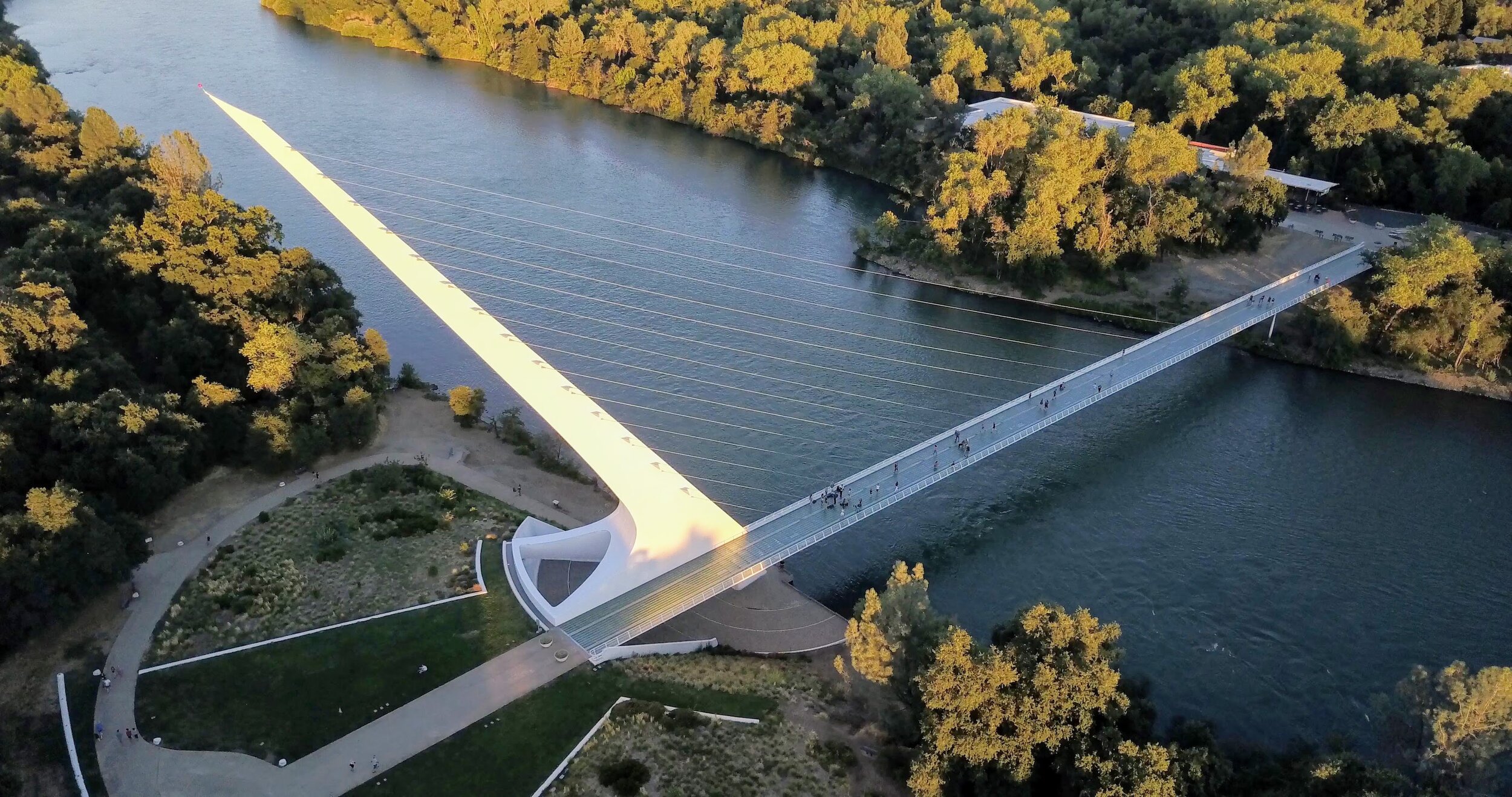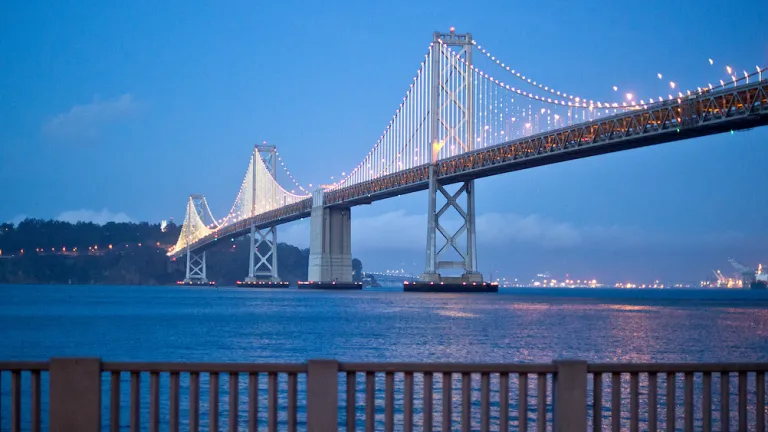Ah, Northern California, a land where the mountains meet the sea, and rivers carve their way through lush landscapes, creating scenes so picturesque, they’d steal your breath away. It’s here, amidst this natural splendor, that humans have built their most interesting architecture – bridges. Not just any bridges, mind you, but structures that stand as testaments to architectural genius, historical endurance, and an undeniable aesthetic charm. When picking out the crème de la crème of these bridges, I leaned on a mix of their design, historical importance, and the sheer beauty of their surroundings. Let’s meander through these marvels together, shall we?
Golden Gate Bridge, San Francisco
No talk of bridges in Northern California – or perhaps the whole country – is complete without tipping our hats to the grand dame herself, the Golden Gate Bridge. Opened in 1937, this suspension bridge, with its iconic International Orange color, was the tallest and longest of its kind at the time. It’s not just the engineering feats that make her special; it’s also the way she seems to greet the fog as an old friend, offering those who visit a view that’s as changing as it is eternal. Whether you’re gazing at her from the Marin Headlands or strolling along her pathways, she’s a sight that never fails to stir the soul.
Did you know that the Golden Gate Bridge’s color, International Orange, was originally meant to be just a primer? However, the architect and engineers found the color not only enhanced visibility in San Francisco’s famous fog but also complemented the natural surroundings beautifully. Thus, the temporary color became a permanent and defining feature. It’s a happy accident that gave the bridge its iconic look.
Bixby Creek Bridge, Big Sur
Journeying down the coast, we come across a bridge that could very well be the poster child for scenic beauty – the Bixby Creek Bridge. Perched above a rugged canyon in Big Sur, this concrete arch bridge has been part of California’s Highway 1 since 1932. Its charm isn’t just in the structure itself but in the dramatic backdrop of the Pacific Ocean and the untamed coastlines of Big Sur. For the photographers among us, the bridge is a dream, offering shots that capture the essence of California’s wild beauty at every turn of the day and year.
Here’s a tidbit for you: when the Bixby Creek Bridge was constructed in 1932, it was one of the largest single-span concrete bridges in the world. What’s more, workers had to use a system of ropes and slings to lower the construction materials down the steep cliffs – a true feat of ingenuity and bravery. It’s a marvel not just of design, but of human determination.
Sundial Bridge, Redding
Venturing inland, the Sundial Bridge at Turtle Bay strikes a different chord. This pedestrian bridge, designed by the renowned architect Santiago Calatrava, opened in 2004 and quickly became a landmark for its unique sundial feature, which is accurate only on the summer solstice. Beyond its time-telling capabilities, the bridge is a piece of art that connects the Turtle Bay Exploration Park’s museums and gardens, making it a hub for community life and a beacon for visitors seeking something truly different.
This one tickles me – the Sundial Bridge doesn’t just tell time (accurately only on June 21st, mind you); it’s also a giant, functional sundial, one of the largest in the world. But here’s the kicker: its design ensures that the bridge itself casts no shadow on the dial part during daylight hours, a testament to the precision engineering and thoughtful design by Santiago Calatrava.
Tower Bridge, Sacramento
In the heart of California’s capital, the Tower Bridge stands as a golden gateway to Sacramento. Since 1935, this vertical lift bridge has been a vital artery for both road and maritime traffic. Its distinctive Art Deco style, painted in a bright gold, symbolizes the city’s vibrant spirit. Experiencing the bridge can be as simple as watching it lift for a passing ship during a sunset river cruise, a sight that reminds us of the romance of river cities.
A nugget of history for you: during World War II, the Tower Bridge was painted a silver color due to concerns over visibility and air raids. It wasn’t until 1976 that the bridge received its distinctive gold color, a nod to the Golden State’s history during the Gold Rush era. It’s fascinating how history and practicality can shape the colors of our landmarks.
San Francisco–Oakland Bay Bridge
Often overshadowed by its more famous neighbor, the San Francisco–Oakland Bay Bridge, or simply the Bay Bridge, deserves its own share of accolades. Comprising two major sections connected by a tunnel through Yerba Buena Island, the bridge is a marvel of modern engineering and design, especially after the completion of its new eastern span in 2013. It’s not just a critical transport link; it’s also a spectacle of lights after dusk, with the Bay Lights installation making it a luminous figure against the night sky.
Here’s a fascinating piece of history: the Bay Bridge has its own island, Yerba Buena Island, which the bridge connects to through a tunnel. When the bridge opened in 1936, it was the world’s longest high-level steel bridge. But did you know that during the bridge’s construction, workers unearthed a prehistoric mammoth tooth on Yerba Buena Island? It’s a vivid reminder of the layers of history beneath our feet and wheels.
Other Noteworthy Bridges
Now, for a touch of the roads less traveled – like the Albion River Bridge in Mendocino County, the last wooden bridge on Highway 1, or the engineering marvel that is the Foresthill Bridge in Placer County. Each bridge, whether grand or humble, tells a story of the land it crosses and the people it serves.
In Conclusion
As we wrap up our journey through Northern California’s bridge landscape, it’s clear that each structure we’ve visited is more than just a way to get from one place to another. They’re landmarks, icons, and stories in steel, concrete, and wood. So, next time you’re out exploring, take a moment to marvel at these bridges – not just for where they can take you, but for where they stand: in the heart of one of the most beautiful places on Earth.
And remember, each bridge has its tale, waiting for you to discover and share. Maybe next time you cross one of these marvels, you’ll find a piece of your own story waiting on the other side.








